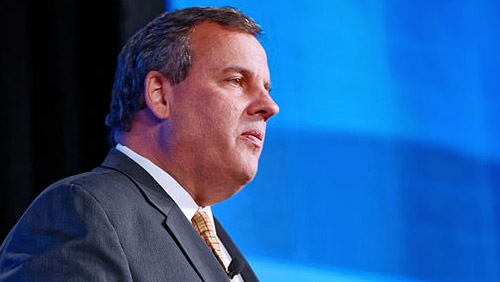 If one person were to be chosen as being the guiding force behind the push for legalized sports gambling in the U.S., it would have to be Chris Christie, the former governor of New Jersey. He tried no less than four times to convince the U.S. Supreme Court that previous lawmakers were completely misguided when they drafted and approved the Professional and Amateur Sports Protection Act of 1992 (PASPA). He finally won the fight in May 2018, and has still kept tabs on the sports gambling industry, recently making an appearance at the Global Gaming Expo (G2E) in Nevada. It was a great time for him to shed some light on where he sees the industry now and where it’s going.
If one person were to be chosen as being the guiding force behind the push for legalized sports gambling in the U.S., it would have to be Chris Christie, the former governor of New Jersey. He tried no less than four times to convince the U.S. Supreme Court that previous lawmakers were completely misguided when they drafted and approved the Professional and Amateur Sports Protection Act of 1992 (PASPA). He finally won the fight in May 2018, and has still kept tabs on the sports gambling industry, recently making an appearance at the Global Gaming Expo (G2E) in Nevada. It was a great time for him to shed some light on where he sees the industry now and where it’s going.
G2E attendees were very interested in what Christie had to say and it was standing room only as he took the stage. He spoke for over half an hour on where the sports gambling industry is working well and where it isn’t, as well as what he expects to see in the future. It was also a chance for him to debunk some of the false assertions that had been made leading up to the Supreme Court’s decision, such as the erroneous belief that sports gambling would kill casinos.
At one point during his talk at the Sands Expo and Convention Center, he stated, “You look at a place like New Jersey, and you see for the first time in a long time increased capital investment from our casino partners in their buildings in New Jersey. Modernizing them, expanding, building brand-new, state-of-the-art sportsbooks that become destinations.”
The politician and former prosecutor also sees an opportunity for improvement in the sports gambling realm. For the activity to succeed, mobile and online wagers will have to be part of the equation, or states are going to lose out on the millennial market. As has already been established by independent surveys, younger generations don’t carry cash and prefer to essentially live online – the sports gambling industry has to embrace that preference, as well.
Christie added, “If you make it easy, they’ll make sports gaming a part of that budget as well, no matter where we are in the economic continuum at the time. But we got to be open-minded about it.”
The appearance was also a perfect opportunity to blast sports leagues for their insistence on the so-called integrity fee. He talked about a conversation he had with NFL Commissioner Roger Goodell that showed the hypocrisy of the fee, given that the NFL has been working with Las Vegas sportsbooks for decades and never asked for an integrity fee. He added that rights fees, money paid to use official league data, was acceptable. If the leagues had taken that route from the start, instead of trying to disguise a money-grab as an integrity fee, they would all be receiving a piece of the action now.